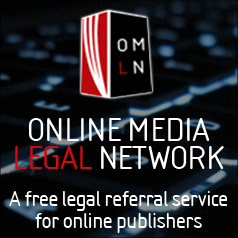
Former Governor of North Carolina, Mike Easley, was convicted of violating campaign finance laws for failing to report a helicopter ride he took with a supporter valued at $1,600 as a donation.
Easley's voice cracked at times as he answered questions from the judge about whether he understood his plea, known as an Alford guilty plea. It means that he did not admit guilt, but acknowledged there was enough evidence to convict him on the charge, which is the lowest level felony in North Carolina.Source: The Raleigh News & Observer
Easley's wife, Mary, and son, Mike Jr., were not in court because, according to one of Easley's lawyers, it was too painful for them to watch.
"I have to take responsibility for what the campaign does," Easley told the judge. "The buck has to stop somewhere. It stops with me, and I take responsibility for what has occurred in this incident."
The judge accepted the plea agreement, which specified that Easley would avoid jail time and receive a fine of $1,000 plus $153 in court costs.
Easley now risks losing his law license - and he enters the history books.
"Any good he did as governor is overshadowed by this," said Gary Pearce, a longtime Democratic Party consultant. "[F]rom now on, whenever someone writes about him, or when his obituary is written some day, the first phrase following the comma after his name will be, 'the first governor convicted of a felony.'"
Last year, his campaign committee was fined $100,000 for various unreported airplane flights. My coverage of that is here and here.
Commentary
Governor Mike Easley has gotten off very easy. This amounts to a mere slap on the wrist for the crimes he has committed.
The effort to convict Governor Easley is a long one. If you care to, you can peruse the posts that appeared on News and Observer blog Under The Dome for a history of the Easley case. They have done a good job keeping up with this criminal probe of Mike Easley.
**5.26am** [News-Record] Did Easley accidently get immunity?
In the courtroom today, right before Easley pleaded guilty, William Kenerly, the special prosecutor assigned to the case, made note of a 1973 that may confer immunity on those subpoenaed to give testimony before the State Board of Elections. Although it’s never been tested in court so far as anyone knows, Easley’s lawyer Joe Cheshire said he thought it would apply in Easley’s case.
The specific statute appears to be GS 163 278.29:
No individual shall be excused from attending or testifying or producing any books, papers, or other documents before any court upon any proceeding or trial of another for the violation of any of the provisions of this Article, upon the ground or for the reason that the testimony or evidence, documentary or otherwise, required of him may tend to incriminate him, but such individual may be subpoenaed and required to testify by and for the State relative to any offense arising under the provisions of this Article; but such individual shall not be prosecuted or subjected to any penalty or forfeiture for or on account of any transaction, matter or thing concerning which he may be compelled to testify or produce evidence, documentary or otherwise, and no compelled testimony so given or produced shall be used against him upon any criminal proceeding, but such individual so compelled to testify with respect to any acts of his own shall be immune from prosecution on account thereof. (1973, c. 1272, s. 1.)






























0 comments :
Post a Comment